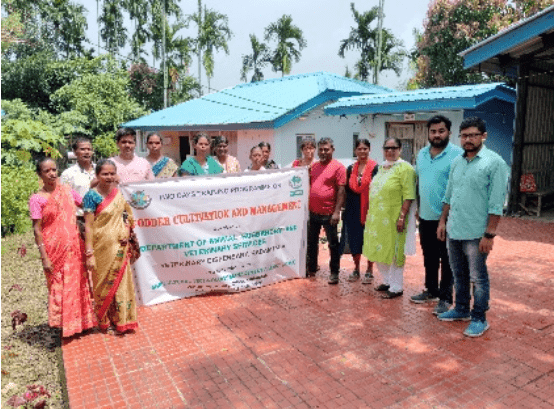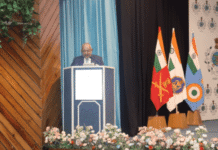In a step towards strengthening sustainable agriculture and livestock productivity in the Andaman and Nicobar Islands, the Department of Animal Husbandry and Veterinary Services (AH&VS) organized a two-day hands-on training on fodder cultivation at the Veterinary Dispensary in Kadamtala. Conducted under the centrally funded UTATMA scheme, the training was held on July 22 and 23 and attracted participation from local farmers looking to enhance their dairy and livestock management practices.
The session was led by Senior Veterinary Officer Dr Nazarna Sen Gupta, who focused on equipping farmers with the skills and techniques required for effective and sustainable fodder production. With growing challenges in ensuring consistent feed for livestock in the islands, the programme aimed to provide practical solutions for high-yield fodder cultivation in local conditions.
The training programme was formally attended by the Pradhan of Kadamtala and a local Ward member, who addressed the participating farmers and stressed the importance of cultivating nutritious fodder for ensuring better milk yield, animal health, and overall farm profitability. Their presence reinforced the role of Panchayati Raj Institutions in promoting community-based agricultural knowledge systems.
Through interactive demonstrations and on-field activities, participants were taught a comprehensive range of topics including soil preparation, seed selection, irrigation planning, pest control, and crop rotation techniques, all specifically designed for fodder crops. The emphasis was on low-input, high-output strategies that rural farmers could adopt with minimal external dependencies.
Dr Sen Gupta demonstrated how to establish and maintain fodder plots, encouraging farmers to integrate them into their existing farming systems. Special focus was given to year-round green fodder production, highlighting the economic and nutritional benefits of consistent livestock feeding. According to officials, access to quality fodder can significantly reduce costs on commercial feed, lower animal health risks, and improve the longevity and productivity of livestock.
The initiative also helped promote awareness about the UTATMA scheme, which supports adoption of sustainable agricultural and livestock practices through technical assistance and community mobilisation. The scheme’s goal is to ensure that smallholder and marginal farmers across the Union Territory adopt best practices that lead to increased economic returns and food security.
Farmers expressed satisfaction with the practical nature of the training and appreciated the hands-on approach, which they said made it easier to replicate the practices on their own fields. For many participants, it was their first direct exposure to structured training in fodder production, a sector often neglected despite its critical role in the island’s rural economy.
By empowering local farmers with actionable knowledge, the training hopes to create a ripple effect where demonstration plots act as learning hubs for neighbouring villages. Officials from AH&VS indicated that follow-up visits and monitoring will be carried out to ensure adoption of practices and troubleshoot any implementation issues.
The Department is expected to conduct similar training in other parts of the islands in the coming months, aligning with the wider goal of boosting rural livelihoods and nutritional security through integrated livestock and fodder development. With growing interest from farming communities, this push for fodder cultivation could play a vital role in stabilizing dairy output and improving income levels for rural households in Andaman and Nicobar Islands.





